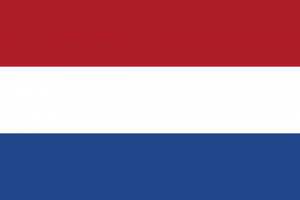Difference between revisions of "Language/Dutch/Grammar/Questions"
m (Quick edit) |
m (Quick edit) |
||
| Line 30: | Line 30: | ||
Asking questions is an important part of any language, and Dutch is no exception. In this lesson, we looked at the different types of questions, as well as the grammar rules that apply when forming them. Now you should have a good understanding of how to ask questions in Dutch. | Asking questions is an important part of any language, and Dutch is no exception. In this lesson, we looked at the different types of questions, as well as the grammar rules that apply when forming them. Now you should have a good understanding of how to ask questions in Dutch. | ||
<br><hr>If you have any questions, please ask them in the comments section below.<br>Feel free to edit this wiki page if you think it can be improved. 😎 | <br><hr>If you have any questions, please ask them in the comments section below.<br>Feel free to edit this wiki page if you think it can be improved. 😎 | ||
==Videos== | |||
===Dutch grammar applied: How to make questions in Dutch with ...=== | |||
<youtube>https://www.youtube.com/watch?v=vKq1_3OOaUM</youtube> | |||
===How to ask questions in Dutch - Dutch lesson for beginners - YouTube=== | |||
<youtube>https://www.youtube.com/watch?v=ICWX1OvmBrk</youtube> | |||
{{Dutch-Page-Bottom}} | {{Dutch-Page-Bottom}} | ||
Revision as of 16:11, 22 February 2023
Hi Dutch learners! 😊
In today's lesson, we will be discussing how to ask questions in Dutch. Asking questions is an important part of any language, and Dutch is no exception. We will look at the different types of questions, as well as the grammar rules that apply when forming them. By the end of this lesson, you should have a good understanding of how to ask questions in Dutch.
Types of Questions
There are two main types of questions in Dutch: yes/no questions and wh-questions.
Yes/No Questions
Yes/no questions are used to ask for confirmation or denial of a statement. They are formed by inverting the subject and verb, and adding a question mark at the end. For example:
- Is het koud? (Is it cold?)
- Heb je honger? (Are you hungry?)
Wh-Questions
Wh-questions are used to ask for information. They are formed by using a wh-word (who, what, where, when, why, how) at the beginning of the sentence, followed by the subject and verb. For example:
- Wie is dat? (Who is that?)
- Wat doe je? (What are you doing?)
Grammar Rules
When forming questions in Dutch, there are a few grammar rules to keep in mind.
- When using a wh-word, the word order is always subject-verb-wh-word. For example: Wat doe je? (What are you doing?)
- When using a yes/no question, the word order is always verb-subject. For example: Heb je honger? (Are you hungry?)
- When using a wh-word, the verb must be conjugated in the correct tense. For example: Waarom kom je niet? (Why aren't you coming?)
Conclusion
Asking questions is an important part of any language, and Dutch is no exception. In this lesson, we looked at the different types of questions, as well as the grammar rules that apply when forming them. Now you should have a good understanding of how to ask questions in Dutch.
If you have any questions, please ask them in the comments section below.
Feel free to edit this wiki page if you think it can be improved. 😎
Videos
Dutch grammar applied: How to make questions in Dutch with ...
How to ask questions in Dutch - Dutch lesson for beginners - YouTube
